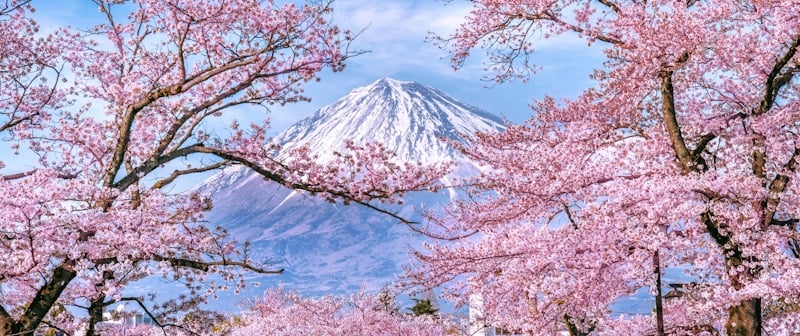Writing is a way to clear the mind. A way to put on paper the ideas running through your head, create a storyline with characters and a theme, and paint a whole picture. When writing, all you want is for the creativity to flow, but sometimes, things get in the middle—things like whether “spring” should be capitalized or not.
The word “spring” does not require capitalization whether it is used as a noun or a verb. The only two exceptions are when people use it as a season in source citations or used as a proper noun. When starting a sentence, whether a verb or a noun, always capitalize it.
The Origin
The word “spring” comes from Old English, “spring” as a noun, and “springan” as a verb. It has a German origin, and its use over time has decreased as many synonyms can replace it in different contexts. Some uses of “spring” as nouns and verbs are as follows:
- Spring is the season between winter and summer. Spring occurs in the northern hemisphere, beginning of March until the end of May, and in the southern hemisphere, from September until the end of November. When you think of traveling to another country, do some research and make sure you are packing for the right season.
- Spring, an elastic device used to pull but returning to its original shape. Commonly seen in mattresses, but with many other uses.
- Spring is a place where water from a subterranean source comes up to the surface.
- Spring, as to suddenly move or jump with speed. E.g., the cat sprang to the counter as soon as its paws touched the carpet.
- Spring, as to originate or to come from. E.g., All this money sprung from an unknown business.

Some examples of the word “spring” in sentences are as follows:
- A year has four seasons; winter, spring, summer, and fall or autumn.
- Spring comes after winter.
- We were so lucky to find a hot spring; it feels like dipping into a sauna.
- We are going to the spring to get some water.
- For children, it is called Easter, but college students call it Spring Break.
- That new company, Spring, is all about technology.
- I sprang out of bed as soon as I saw him in the news.
- As soon as I turn the ignition, the engine springs to life.
- In movies, police look for spring hostages.
- Whenever she hears that song, tears spring from her eyes. That is why she wants to have it played at the wedding.
- Payday is coming, and I might spring a few bucks for a new purse.
- The springs in my mattress need replacing.
- If the springs start to come out of the bed, I think it’s time to flip the mattress.
- Look over there! It’s a spring of teals.
- Are you going to Spring, Texas, or Spring, Massachusetts? Since we would have to take a different highway. I’m going to a different spring. I bought the plane ticket thinking of Texas but ended up buying one for Spring, Brandenburg, so I better get those coats out of the storage.
What Does Capitalization Say About This?
Rules of capitalization are here to stay. Meaning they were created to help with reading and comprehension and to ensure standardization among texts. Remembering the rules is not something people need to do, but by going through school and practicing, people tend to remember some more than others. Let’s refresh some of these rules that, at times, are easy to forget.
- Always capitalize the first word in a sentence. This is called a sentence case, and fortunately, it is the one that no one ever forgets. The first thing children learn after they start writing.
- Capitalize the pronoun “I” but only in the subjective form; any other forms such as “me,” “mine,” or “my” do not carry capitalization. No other pronouns require capitalization.
- Some nouns take capitalization, and although there are different types of nouns, the only ones that require a capital letter are the proper nouns. A proper noun is specific to a person, place, or thing. Names of people are considered proper nouns even though you may know two people with the same name. E.g., love, books, water, fruit juice, family, house, pens, pencil, dogs; but John, Mary, or Lucy. When using this person’s name, you will know which one comes to mind. Examples of proper nouns are Carlos, the Atlantic Ocean, the Golden Gate Bridge, Fifth Avenue, Asia, The Odyssey.
- Adjectives that come from proper nouns keep their capitalization. For all others, it wouldn’t apply. e.g., an Englishman in New York.
- When capitalizing a title, you should follow the title case. The title case basically indicates that all significant words should be uppercase and minor words lowercase. According to this rule, nouns and verbs should be capitalized. Here are some examples of the word spring in a title:
- The Spring: A Play
- When Comes the Spring
- When Springs Comes
- Wake Me in Spring
- Next Spring an Oriole
- Alice Springs
- Discovery at Flint Springs
- Powder Springs
- The Spring Cleaning Murders
- Mud Flat Springs
- Scandal in Spring
- The Spring of the Ram
- Great Hot Springs of the West
- Ploughshares Spring 1999
- Twelve Weeks in Spring
How Do I Know When Capitalization Applies?
With the word “spring” only having two functions on a text, noun and verb, and on some occasions as an adjective, capitalizing is out of the question. What scenario would require the capitalization of “spring”?
You Should Do It When
- The word “spring” has been made into a proper noun.
- The word “spring” acts as an adjective and is recognized as a proper noun. e.g., Spring Break.
- Suppose the word is part of a title. Considering that its function will either be a noun or a verb (both major words), they’ll both be capitalized regardless of the style guide used for writing.
- When this word is part of a citation and includes the exact date, month, or season, the season cited must be capitalized. eg. Jovanovic, Boyan, and Peter L. Rousseau. “Specific Capital and Technological Variety.” Journal of Human Capital 2 ( Summer 2008): 129-52.doi:10.1086/590066.
You should Not Do It When
- Don’t capitalize “spring” when it is a content word.
- Don’t capitalize “spring” when it refers to a season.
- Don’t capitalize “spring” when it is describing an action.
- Don’t capitalize “spring” when it is used in a mechanical context.
See It In Context
Here’s another example of how to put this word into context and how capitalization would apply:
This Spring Break, I’m thinking of a few things to do. Maybe I’ll visit my brother in Japan and see the cherry blossoms blossom or stay at my sister’s in Taiwan and eat many spring rolls. Perhaps I should just stay home and attend a BTS concert; I really love their new song, Spring Day.
To Summarize
The word spring can be uppercased based on the context where it is written. If you are talking about a spring of water, the allergies from the spring season, an action being performed, or just how uncomfortable that bed has become, spring would be lowercase.
If you use it in a title, a heading, when starting a sentence, or as a proper name in an invitation like Spring Break, it should be capitalized.
But if you just don’t remember the ‘do’s or don’ts’ for this word, don’t stress over it; make it all caps, SPRING, and hope for a good and pleasant reaction.
Shawn Manaher is the founder and CEO of The Content Authority. He’s one part content manager, one part writing ninja organizer, and two parts leader of top content creators. You don’t even want to know what he calls pancakes.


